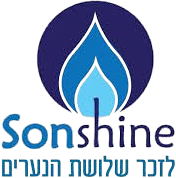A mikveh is a place of ritual, a place of purity, a place of tradition, a place of transformation.
Mayyim Hayyim makes mikveh accessible and meaningful to the full spectrum of our people
for the first time in Jewish history. In the words of Rabbi Abraham Isaac Kook, “The old becomes new, and the new becomes holy.” That is Mayyim Hayyim.
We are a place where friends and family gather for education, support and celebration.
Our founder, famed author Anita Diamant, visited the mikveh to write about it as she wrote guidebooks to Jewish living. Converts to Judaism, embarking on their journey and new life as a Jew, often harness a desire for friends and family to join them in the transformation and share in the rich and spiritual experience.
But no mikveh she visited had room for a group to gather, or a program to enhance, support and guide the convert before and during their immersion, or to rejoice with them following. Rabbis and converts from the liberal community had to enter onto someone else’s turf to visit the mikveh, during a small window of time each week. Anita identified this dearth in the Jewish community, envisioning a place where the entire Jewish community could have shared ownership of a ritual space, and the seed for Mayyim Hayyim took root.
We are a place where all Jews are welcome and can gather to learn and explore.
If you don’t know about something, you can’t choose to engage with it. The majority of the American Jewish community is raised unfamiliar with the beauty and rich tradition of mikveh. A few may hear about the concept prior to getting married, but for most, either it’s a complete unknown or worse – a foreign, mysterious, veiled experience reserved for the Orthodox community.
We want to change that. Our education programs demystify the mikveh experience. There’s no evangelism here. We’re offering self-identified Jewish people of all backgrounds and views an opportunity to engage with this experience at any level they choose. All Jews are accepted here: Reform, Conservative, Reconstructionist, Masorti, Humanist, Orthodox, unaffiliated. Jews of all colors. GLBT Jews. Those in the process of becoming Jewish. People of other faith traditions are always welcome to come and learn, and to assist others in their immersions.
Our guides and educators are trained to be respectful of everyone who steps through our doors. We provide a non-judgmental environment where people feel safe to ask questions they might be scared or embarrassed to ask. It’s safe to share feelings here, even if they’re negative, constructive, suspicious or intimidated. People immerse at Mayyim Hayyim for traditional reasons like conversion to Judaism and to mark the end of menstruation, as well as other transitional moments: celebrating a milestone birthday, preparing to become a parent, healing from illness or loss. We give each person what she or he needs for his or her experience.
To us, pluralism means giving everyone access to all facets of Jewish experience, not just those that are convenient. Mayyim Hayyim is one of the few mikvehs in the country that is accessible to people with disabilities. A wheelchair-accessible preparation suite, an aquatic lift to get down to the water, guides who have experience guiding guests with physical disabilities, vision impairment, hearing impairment, Autism spectrum disorders, people in hospice and survivors of trauma – all our fellow Jews: you are important. You are wanted. You are accepted and you are welcome.
We are a place where all Jews can gather to experience transformation and spirituality on their own terms.
The essence of mikveh is that of transformation and transition. At Mayyim Hayyim, we strive to create an environment of pluralism, to enable everyone to mark transitions and life events that are not only halachic events. It is a space to offer support, guidance, spirituality and meaning to the greater Jewish community.
Carrie Bornstein, Executive Director
Carrie grew up in a world that did not know from mikvehs. She first visited a mikveh prior to her wedding and remembers feeling that the ritual was very powerful; she was drawn to it. After Carrie heard Anita speak in 2001, she felt like her eyes were opened. A “light bulb moment” revealed her truth: naturally, mikveh could be beautiful and meaningful and open to all Jews, not perfunctory or exclusive. Carrie found the pluralism of Mayyim Hayyim valuable; not prioritizing one practice over another felt authentic. She started as a volunteer in 2006 and came on staff in 2008.
Leeza Negelev, Associate Director of Education
Leeza was raised with a variety of entry points into Jewish life, experiencing both the highs and lows of education and access to Chabad, the yeshiva world, secular Judaism, American Conservatism, the Reform movement. What she took away from the experiences was an
incredible richness of what is offered on so many levels, both culturally and spiritually. In addition, however, she identified that based on fears and insecurities, Jews sometimes push each other out inadvertently. Reclaiming Jewish traditions personally drove her, and she decided that this needed to be her professional calling as well.

